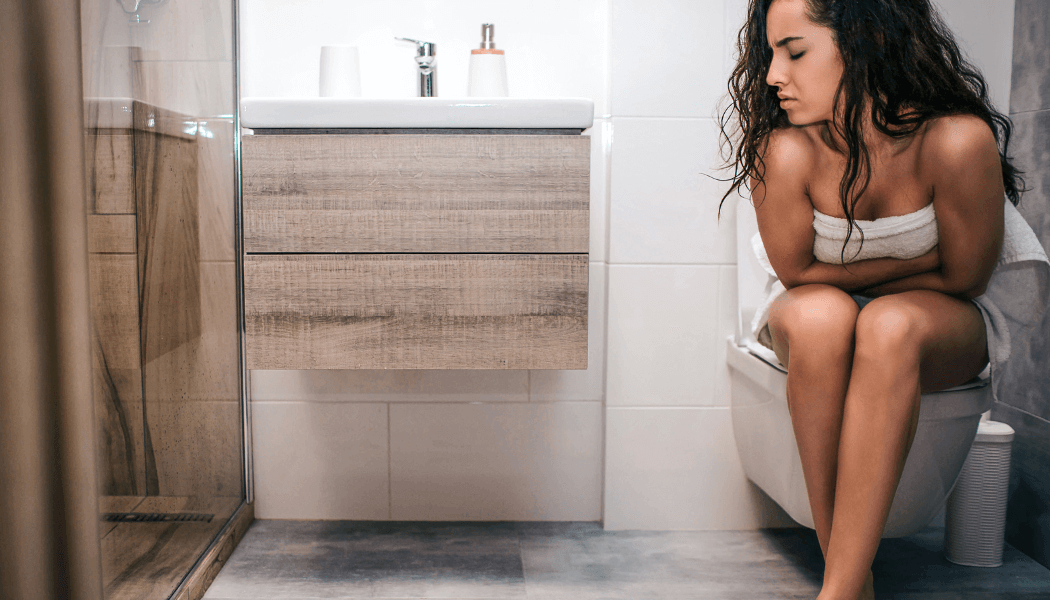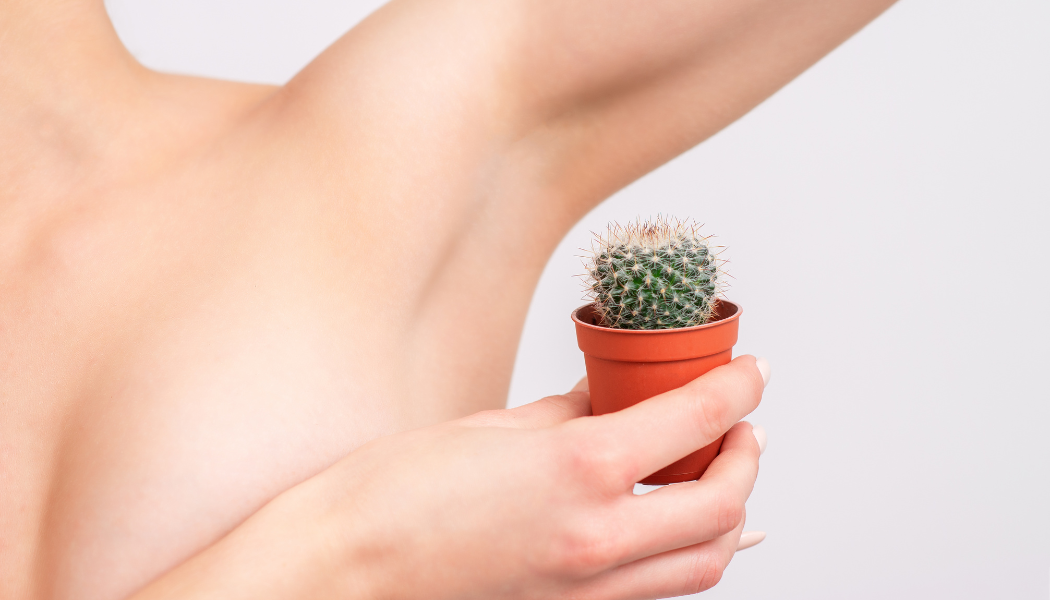Why Does It Burn When I Pee?

Introduction
If you're suffering from burning pain and discomfort when you pee, it's likely you have a bladder infection. This can be a source of great distress, especially if it feels like the burning increases as soon as you sit on the toilet.
But there is good news: bladder infections are treatable, and there are some steps you can take on your own to get rid of them quickly. In this article, we'll discuss the various causes of bladder infections and then offer up some simple DIY remedies for healing the infection and reducing those uncomfortable symptoms like burning pain when urinating. By taking a holistic approach to healing your bladder infection at home, you can stop the burning sensation fast and get back to living life worry-free.
What Causes the Burning Sensation When Urinating?
When you experience a burning sensation when you pee, it's typically a sign that you have a urinary tract infection (UTI). The burning occurs due to inflamed tissue in the urinary tract and is often accompanied by other symptoms such as frequent urination, an increased urgency to urinate, and lower abdominal pain.
It's important to note that men can also suffer from UTIs, but women are more prone to them because their urethra is shorter than that of males. This shorter distance makes it easier for bacteria from outside the body to enter into the bladder or urinary tract.
Some of the most common causes of UTIs include not fully emptying your bladder when you go to the restroom, wiping from back-to-front after a bowel movement, improper hygiene practices (such as not washing your hands before and after using the restroom), and wearing tight-fitting clothing that traps moisture against your skin.
Signs and Symptoms of a Bladder Infection or UTI
If you have a bladder infection, or UTI, you might experience a burning sensation when you pee. Other common signs and symptoms of a bladder infection include:
- A strong and persistent urge to urinate
- Urine that appears cloudy or dark
- Urine that smells bad
- Pain in the lower abdomen or back
- Pelvic discomfort in women
- Foul smelling urine that may be pink or red if blood is present.
If your UTI is more severe, you may experience fever, chills, nausea, and vomiting. In more extreme cases, UTIs can cause excessive urinary retention and confusion. It’s important to see your doctor as soon as possible if you think you have a bladder infection so they can help determine the best treatment for you.
Home Remedies to Relieve UTI Pain and Burning
If you're looking to get rid of your blazing bladder infection quickly, there are a few home remedies you can try that may provide relief.
### Cranberry Juice
Cranberry juice has natural antibacterial properties and is believed to help reduce the amount of bacteria in the urinary tract. You should aim for unsweetened pure cranberry juice as it contains more beneficial ingredients and fewer calories. It's a great way to increase your fluid intake while helping flush out the bladder infection.
### Broccoli Sprouts
Broccoli sprouts contain compounds such as sulforaphane that have antibacterial properties which may help fight off bacteria in the urinary tract. You can purchase them at most health food stores or online, but they are also easy to grow at home.
### Apple Cider Vinegar
Apple cider vinegar is known for its anti-inflammatory and antimicrobial effects, making it a powerful weapon for fighting off UTI-causing bacteria. Add one tablespoon of raw apple cider vinegar to eight ounces of water and drink it two or three times daily until your symptoms improve.
How to Flush Out a Bladder Infection
A bladder infection can be uncomfortable, and more importantly, painful. To help flush out the infection, it's important to increase your fluid intake and urinate frequently. This helps to flush bacteria from the system and make it easier for the antibiotics to work.
You can also do the following:
1. Drink plenty of water - aim for 8-10 glasses a day for maximum benefit
2. Increase your intake of pure cranberry juice - research has found that cranberry juice has natural properties that help to flush out bacteria from the bladder
3. Limit alcohol and caffeine intake - alcohol and caffeine are dehydrating and can aggravate bladder infections
4. Exercise regularly - exercising can actually increase your body's ability to fight infections
5. Empty your bladder after having sex - this helps to flush out any bacteria that may have been transmitted during intercourse
6. Take warm baths - warm baths have been known to help alleviate some of the burning sensation associated with bladder infections, add a little apple cider vinegar to your bath.
7. Seek medical attention if symptoms persist or become worse - if you find that the burning pain persists, or gets worse, then it's best to seek professional medical advice right away
OTC Medications to Soothe UTI Discomfort
There are over-the-counter medications that can assist in relieving the burning pain associated with a bladder infection. Many of these medications come in the form of tablets or capsules.
The most common type are called anticholinergics, which work by blocking the messages sent from your brain to your bladder and reducing spasms of the bladder muscles. These medications can provide quick relief from the intense discomfort of a bladder infection while also helping to reduce urinary frequency and urgency.
Other over-the-counter remedies include:
* Phenazopyridine, which helps to ease burning while urinating and is often used to treat mild UTI symptoms
* Cranberry extracts, which contain compounds that may help reduce bacteria in the urinary tract.
* Antibacterial ointments and creams, which can help reduce inflammation and soothe burning sensations while peeing
It is important to note that while OTC medications can help provide temporary symptoms relief, it is best to see a medical professional if you experience any moderate to severe signs of a urinary tract infection.
When to See a Doctor for Your Bladder Infection
Though a bladder infection is often irritating and uncomfortable, it's typically not an emergent medical situation. However, if the symptoms persist or worsen, it's important to seek professional help. It's also important to get help if you suspect you may have a more serious underlying condition causing your discomfort.
It's time to see a doctor if:
- Your burning pain is severe
- Your signs and symptoms don’t improve with home care measures
- You have a fever higher than 101°F (38.3°C) or blood in your urine
- You experience nausea or vomiting along with your signs and symptoms
- You have frequent or urgent urination
- You’re pregnant
- This is the first time you’ve had these symptoms
Making an appointment with your doctor will provide several benefits: they can review your lifestyle habits and diagnose any underlying causes of the infection, adjust any medications that may be aggravating your condition, and tailor the treatment plan specifically for you. Plus, they can provide strategies to prevent future infections.
Conclusion
Having a bladder infection can be a tricky and uncomfortable situation. The most important thing to remember is that you should never try to treat a bladder infection at home without consulting a doctor first.
By following the advice of your doctor and following the tips in this article, you can stop the burning pain fast and get back to your life before the infection. Make sure to drink plenty of fluids, take all medications as prescribed, and get plenty of rest to help your body fight off the infection. If none of these work, it may be time to visit your doctor once again and ask for alternative treatments.
+ Using V-Blissful Soothing Solution after sex, or at the first sign of feeling the burn help ward off UTI's or Bladder Infections.


